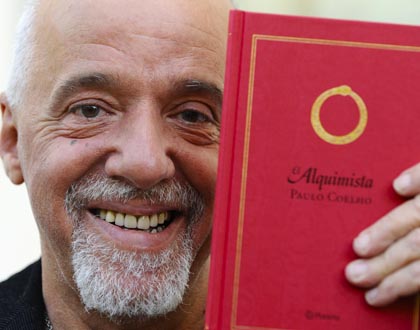|
human being and his words are truly motivational. In 1996, Coelho founded the Paulo Coelho institute, which provides support to children and the elderly. He is married to Christina Oiticica, who is an artist.
In total Coelho has published 30 books. Three of them- The pilgrimage, The Valkyries and Aleph are autobiographical, while the majority of the rest are fictional, although rooted in his life experiences.
Brida, Like the Flowing River, Manual of The Warrior of Light, By River Piedra I Sat Down and Wept, The Zahir, Veronica Decides to die are some of his notable works. The Spy, which was published in 2016, was his latest book.
Coelho is not only unique in his stories’ subject matter, but also his straightforward delivery.
In his book The Alchemist, he said “No matter what he does, every person on earth plays a central role in the history of the world. And normally he doesn’t know it”. Yes, it is he who taught us that we all are here for a purpose. And what Paulo Coelho’s intention to be here was not just to write novels but to inspire people. And he inspired us too!!!

|
